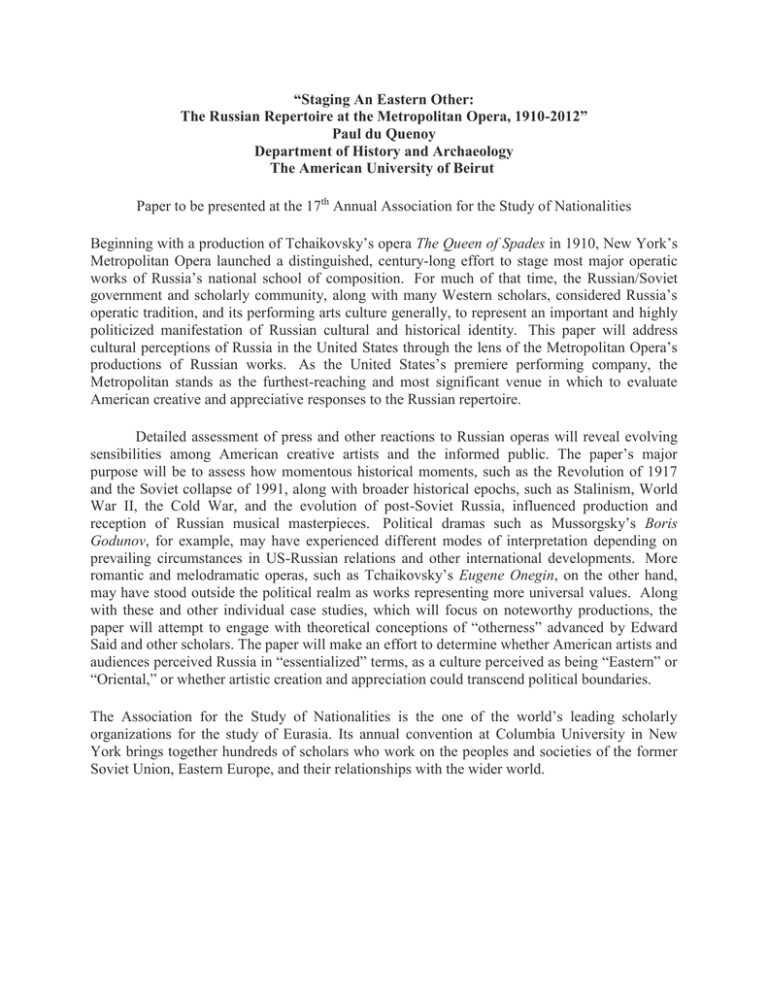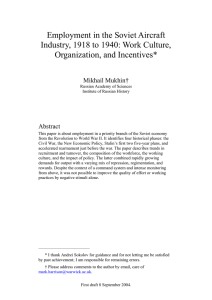Staging An Eastern Other: The Russian Repertoire at the Metropolitan Opera, 1910-2012
advertisement

“Staging An Eastern Other: The Russian Repertoire at the Metropolitan Opera, 1910-2012” Paul du Quenoy Department of History and Archaeology The American University of Beirut Paper to be presented at the 17th Annual Association for the Study of Nationalities Beginning with a production of Tchaikovsky’s opera The Queen of Spades in 1910, New York’s Metropolitan Opera launched a distinguished, century-long effort to stage most major operatic works of Russia’s national school of composition. For much of that time, the Russian/Soviet government and scholarly community, along with many Western scholars, considered Russia’s operatic tradition, and its performing arts culture generally, to represent an important and highly politicized manifestation of Russian cultural and historical identity. This paper will address cultural perceptions of Russia in the United States through the lens of the Metropolitan Opera’s productions of Russian works. As the United States’s premiere performing company, the Metropolitan stands as the furthest-reaching and most significant venue in which to evaluate American creative and appreciative responses to the Russian repertoire. Detailed assessment of press and other reactions to Russian operas will reveal evolving sensibilities among American creative artists and the informed public. The paper’s major purpose will be to assess how momentous historical moments, such as the Revolution of 1917 and the Soviet collapse of 1991, along with broader historical epochs, such as Stalinism, World War II, the Cold War, and the evolution of post-Soviet Russia, influenced production and reception of Russian musical masterpieces. Political dramas such as Mussorgsky’s Boris Godunov, for example, may have experienced different modes of interpretation depending on prevailing circumstances in US-Russian relations and other international developments. More romantic and melodramatic operas, such as Tchaikovsky’s Eugene Onegin, on the other hand, may have stood outside the political realm as works representing more universal values. Along with these and other individual case studies, which will focus on noteworthy productions, the paper will attempt to engage with theoretical conceptions of “otherness” advanced by Edward Said and other scholars. The paper will make an effort to determine whether American artists and audiences perceived Russia in “essentialized” terms, as a culture perceived as being “Eastern” or “Oriental,” or whether artistic creation and appreciation could transcend political boundaries. The Association for the Study of Nationalities is the one of the world’s leading scholarly organizations for the study of Eurasia. Its annual convention at Columbia University in New York brings together hundreds of scholars who work on the peoples and societies of the former Soviet Union, Eastern Europe, and their relationships with the wider world.





